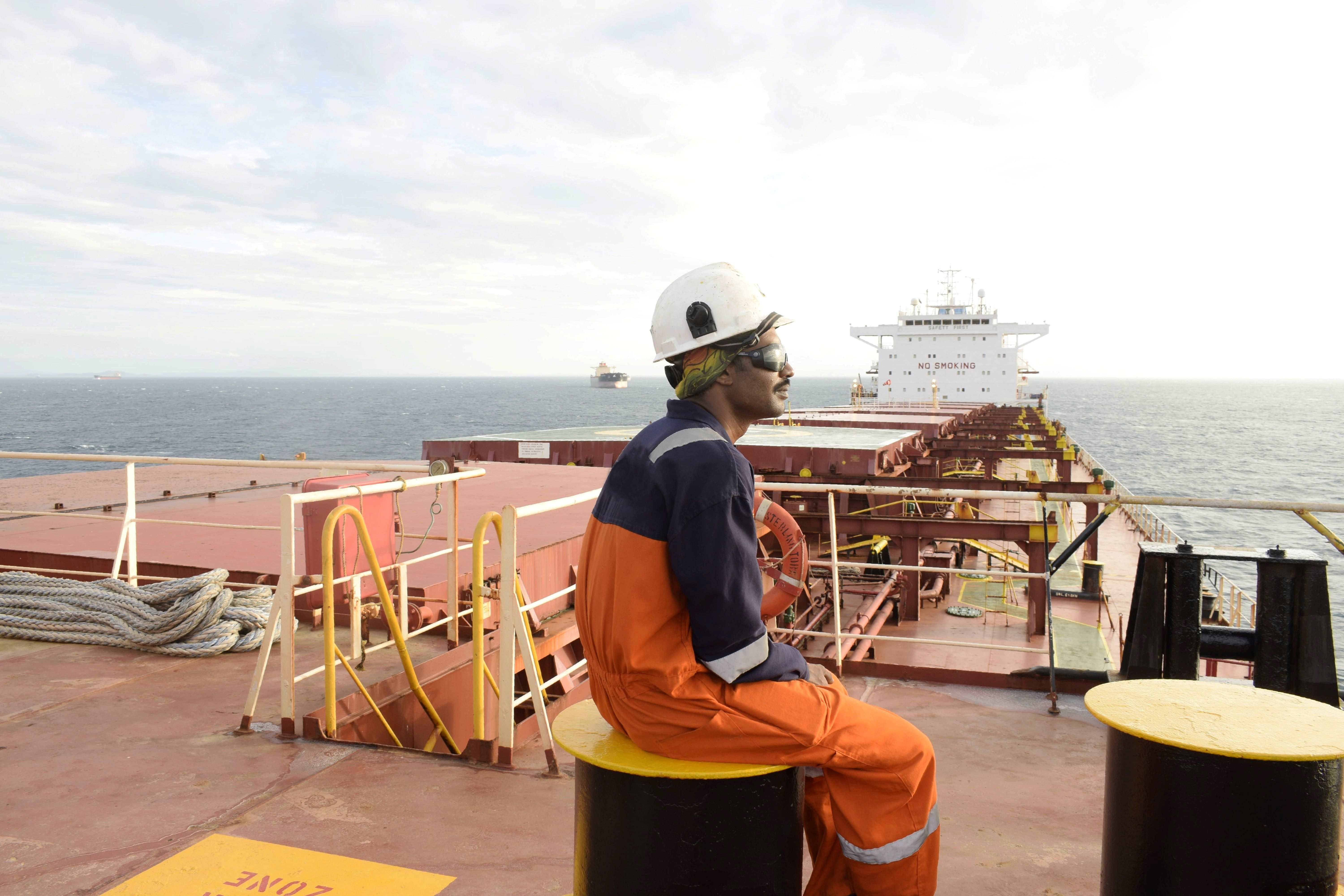Migrants in the Mediterranean 2020
Despite the lack of media attention due to COVID-19, the migrant rescue at sea crisis in the Mediterranean is far from over, with tens of thousands of migrants still attempting to make the dangerous sea crossing from Africa to Europe in overcrowded and unseaworthy craft.

Shockingly, according to the office of the United Nations High Commissioner for Refugees (UNHCR) a further 1,300 migrants lost their lives during 2019, and hundreds more have already perished during the first months of 2020. This is also now a problem in the world’s busiest sea lane, the English Channel, where hundreds of illegal migrants attempted to cross from France to the United Kingdom in small rubber boats during the summer of 2020.
Under the IMO Safety of Life at Sea Convention (SOLAS), ships have a legal obligation to come to the assistance of anyone in distress at sea. The principal obligation of shipowners is humanitarian, and ICS continues to promote the use of the industry Guidelines for Large Scale Rescue Operations, whose development was led by ICS as a directresponse to the terrible situation in the Mediterranean. However, the primary interest of ICS is that port states will continue to adhere to their legal obligation, under international law, to provide prompt and predictable disembarkation of rescued people as soon as possible.
Increasingly there have been incidents where governments have denied entry to ships that have undertaken rescues. In August 2020, for example, a tanker had to anchor off the coast of Malta for more than four weeks after rescuing 27 people, including a child and a pregnant woman, with authorities in Malta and Tunisia denying the vessel entry.
Since the crisis first escalated in the Mediterranean five years ago, governments such as Italy and Greece have permitted, to their great credit, the prompt disembarkation from merchant ships of over 80,000 rescued people. But the crisis now seems to be taking an ever more political direction. Tensions due to concerns about migration have been increasing across Europe.
As attitudes in Europe towards illegal immigration harden, exacerbated by concerns about COVID-19, the shipping industry remains concerned about the possibility of prompt disembarkation of rescued persons being refused. In the meantime, until the root causes are resolved (conflict in the Middle East coupled with instability in many parts of Africa) large numbers of migrants can be expected to continue their perilous attempts to enter Europe by sea.
Despite increased efforts to clamp down on their activities, the main cause of the continuing large number of migrant
deaths is the murderous practice by criminal smuggling gangs of sending hundreds of people to sea at the same time. This makes it extremely difficult for rescuers to save them all. The dynamic in the Mediterranean has evolved, and there has been a significant reduction in the number of migrant rescues being carried out directly by merchant shipping. Nevertheless, merchant ships are still routinely diverted by Rescue Co-ordination Centres (RCCs) to assist.
The situation is very fluid given the continuing civil conflict in Libya. However, the European Union, and Italy in particular, has worked closely with the Libyan authorities to establish a functional coastguard, and has provided both equipment and training to facilitate this.
Within its territorial waters, the Libyan coastguard has itself now rescued, and returned to Libya, a significant proportion of migrants seeking to make the crossing. This new policy, however, is controversial due to the conditions that returning migrants face in Libya.
If ships are directed to disembark rescued people in North Africa, this clearly creates a potential for conflict between the crew and desperate and frustrated people who might.
object to being returned. Given the number of persons picked up by merchant ships in a single large scale rescue operation, the crew of the rescuing ship can easily be outnumbered and overwhelmed. It is therefore vital that coastal states’ Search and Rescue (SAR) authorities coordinate and provide for disembarkation in a place of safety, both for the sake of those rescued and for the seafarers involved in the rescue.

It should be remembered that the merchant seafarers on board ships that continue to be involved in these incidents are civilians. They can be severely affected by the traumatic situations they have to face, having complied with their legal and humanitarian obligations.
ICS’s primary concern is to ensure that governments continue to provide prompt and predictable disembarkation for large numbers of migrants rescued at sea by merchant ships
ICS continues to liaise with a variety of international fora whenever migration issues affecting shipping are considered, including the Office of the United Nations High Commissioner for Refugees (UNHCR) and the International Organization for Migration (IOM), in addition to IMO.
Related content

Seafarer wellbeing under threat amid geopolitical conflict

Poster: Ukraine Crisis Support Helplines for Seafarers and their Families

Poster: COVID-19 can be life threatening
